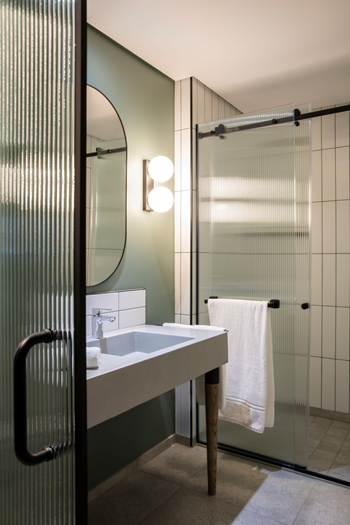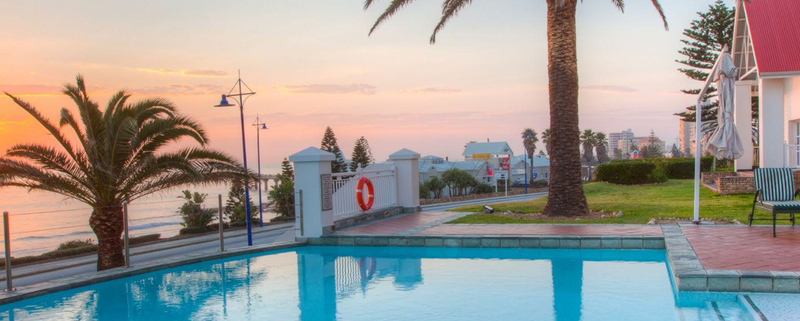The recent World Travel Market London highlighted travellers’ strong preference for sustainable options, while Euromonitor’s research identifies 8 traveller segments – with sustainability as a common theme across multiple traveller segments.
The eight segments are: eco-adventurers, blended travellers, leisure seekers, cultural explorers, luxury seekers, wellness worshippers, digital travellers, and adventure lovers. Euromonitor’s findings show that 79% of both eco-adventurers and cultural explorers are willing to pay up to 10% more for sustainable travel features.
City Lodges’ sustainable initiatives
City Lodge Hotels has significantly expanded its sustainability initiatives in recent years, and strives to conduct business in an environmentally responsible way in line with its values, details of which are unpacked under “Natural Capital” in its latest Integrated Report 2023; “We diligently assess our environmental footprint and implement measures to mitigate adverse impacts, aligning sustainability with ease of stay.”
Achievements for the 2023 financial year:
- Average water consumed per occupied room: 0.35kl (2022: 0.39kl)
- Average electricity consumed per occupied room: 19.5 kWh (2022: 22.5 kWh)
- Energy produced by solar/PV installations: 2.2 million kWh (2022: 2.1 million kWh)
o New solar/PV installations give us capacity to generate 3.5 million kWh - Cage-free eggs commitment: 65% of eggs served across the group currently (2022: 55%)
Electricity management
The group’s properties mainly use electricity from national providers, supplemented by backup diesel generators during frequent power outages. Most of the group’s energy consumption (70% of carbon footprint) comes from water heating, air conditioning, lighting, and laundry. Total energy consumption for the financial year was 29.5 million kWh (2022: 23.7 million kWh). Efforts to reduce this focus on operational and technical efficiencies. Overall energy consumption increased by 24.5% (2022: 33.9%) due to higher occupancies and improved food and beverage offerings.
Electricity consumption, per occupied room and available room, and related costs are as follows:

Embracing renewable energy aligns with the group’s sustainability goals and need for uninterrupted energy supply for guests. The group has already installed 4 250 solar panels at 25 hotels at a cost of R20 million, generating over 2 million kWh annually, close to 8% of the group’s total energy usage. An additional 16 hotels have had solar panels installed by November 2023, adding more than one million kWh / year to generation capacity, and taking total generating capacity across all 41 hotels to 3.5MWh with an installed capacity of 2.581 MWp.
The group has already installed 4 250 solar panels at 25 hotels at a cost of R20 million, generating over 2 million kWh annually, close to 8% of the group’s total energy usage.
City Lodge Hotels is exploring electricity storage options to supplement its solar initiatives and further ease the challenges posed by load-shedding and rising electricity costs. Two hotels have had different size batteries and inverters installed and these are being used to assess feasibility and effectiveness.

The group is also looking into generator integrators, which allow for the simultaneous utilisation of generators and solar power. This approach aims to enhance the resilience and sustainability of energy systems, ensuring uninterrupted supply even during grid disruptions. By integrating these technologies, City Lodge Hotels is building on its multifaceted approach to energy management and reinforcing its proactive response to South Africa’s evolving energy landscape.

Water management
The group’s commitment to improving water efficiency at its properties is a joint effort between employees and guests, with various measures in place to reduce consumption without compromising the guest experience. As part of this approach, the number of rooms with baths has been reduced to approximately 60% and low-flow showerheads and taps have been installed. Total water consumption for the period was 522 181kl (2022: 410 942kl), a 111 239kl or 27.1% increase year-on-year mainly due to increased occupancy. Average water consumed per occupied room decreased by 10.3% from 0.39 Kl per occupied room to 0.35Kl.
Currently 20 hotels use boreholes, 7 use filtration systems and 20 have water storage capacity, with a further 3 boreholes, 14 filtration systems, and 9 water storage solutions in progress.
The challenges of water security have resulted in the group increasing the use of borehole water and installing filtration plants to ensure water is potable. Currently 20 hotels use boreholes, 7 use filtration systems and 20 have water storage capacity, with a further 3 boreholes, 14 filtration systems, and 9 water storage solutions in progress. Town Lodge Umhlanga’s existing borehole is being better utilised.
Water quality at the group’s properties is managed using biodegradable chemicals and products, installing grease traps, and implementing saltwater chlorinators for swimming pools.
Waste management
The group has reinitiated its recycling efforts in select locations, which were paused during the pandemic. City Lodge Hotels strives to eliminate food waste to landfills and its proactive approach aligns with regional regulations, such as those in the Western Cape, in which a 50% reduction in base-level food waste is mandated.
The group has partnered with Organic Matters, an innovative, black-owned SME specialising in collecting, cleaning, recycling, and reusing cooking oil and grease. A system has been implemented across the hotels to efficiently extract grease from the recently upgraded kitchen grease traps. Organic Matters employs specialised technology to perform this extraction, composting the oil for responsible reuse. Through this partnership, waste handling standards have been elevated within the hospitality industry, aligning with broader sustainability objectives, and demonstrating the transformative power of strategic alliances in shaping sustainable practices.
Animal welfare
City Lodge Hotels publicly committed in January 2020 to serve only 100% cage-free eggs across all operations by 2025, partnering with Humane Society International-Africa in this endeavour. Currently, the group serves just over 2 million eggs annually, of which 65% (2022: 55%) are cage-free. Our sustainability committee is also exploring ethical options for sourcing pork, reflecting our ongoing dedication to ethical sourcing and sustainability.
Currently, the group serves just over 2 million eggs annually, of which 65% (2022: 55%) are cage-free.
Goals for the year ahead
In the coming financial year, the group intends to address the following sustainability issues for which data is currently unavailable:
- Non-hazardous waste that is recycled, reused, or disposed of to landfill
- Non-hazardous solid waste that is paper, plastic, glass, metal, organic, electronic, or a combination
- Total plastic waste weight that is single-use
City Lodge Hotels replaced its bathroom amenities with environmentally-friendly alternatives in July 2020, eliminating single-use plastic from guest rooms. Its partnership with The Bespoke Amenities Company has resulted in a circular economy model, with product delivered and empty boxes and discarded products from guests collected for efficient waste management and disposal.
“Sustainability truly flourishes when integrated into our day-to-day operations, yielding measurable results.”
The introduction of hydration stations at all hotels in 2021, offering free, filtered, magnesium-enriched still and sparkling water has further minimised single-use plastic bottles in circulation.
Andrew Widegger, chief executive officer, says, “City Lodge Hotels’ commitment to sustainability has gained momentum through collaboration with like-minded suppliers and our guests. What were once considered optional enhancements are now integral to our business practices. Sustainability truly flourishes when integrated into our day-to-day operations, yielding measurable results. We take this journey alongside our guests, suppliers, and the broader industry, confident that together we can accomplish even more remarkable milestones.”
RELATED: Hotels under the spotlight: Shocking climate impact stats







